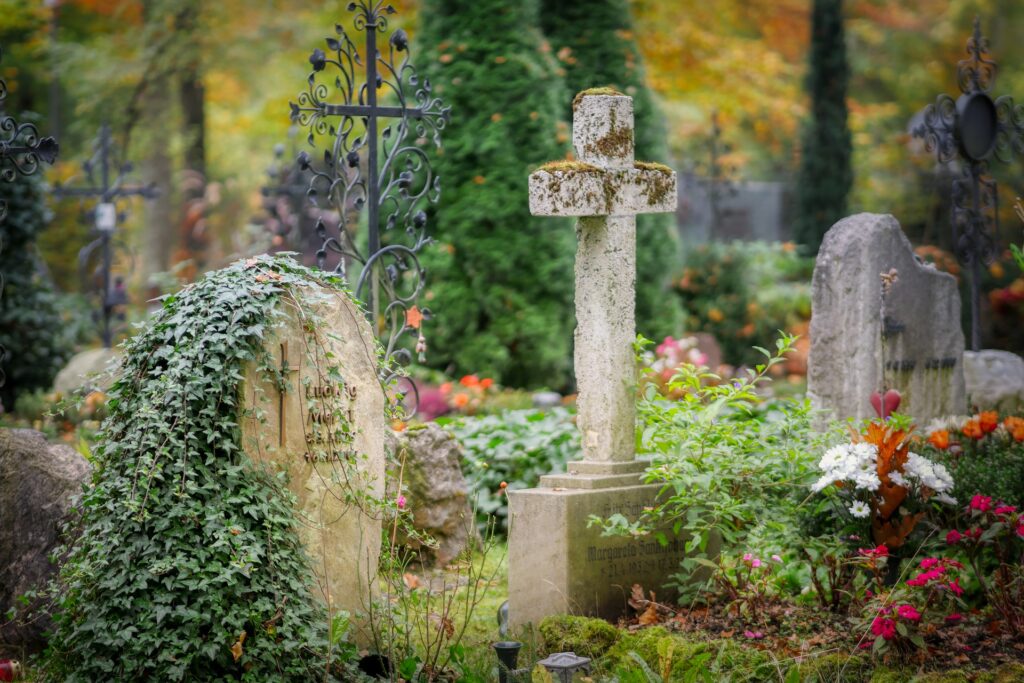
Tombstone Territory (Matthew 27:57-61)
After Jesus had died, there was obviously a need to do something with the body. In Jesus’ day, two things were often done with the bodies of those who died on the cross:
- They were left to rot on the cross. Obviously, these bodies provided plenty of good food for the birds.
- They were buried in mass graves.
Some atheists want to say that these things happened to Jesus.
If people wanted to bury a crucified loved one, they had to apply for permission to do so. Permission was usually granted for such burial, except in cases of high treason. The Jews, however, did not wish for bodies to remain unburied overnight (Deut 21:22-23).
If Jesus weren’t buried in an identifiable tomb, that would throw serious doubt on His Resurrection. After all, the women found Jesus’ tomb empty.
How do we know that Jesus was buried in an identifiable tomb?
- Matthew 27:57-61 makes a strong case that Jesus was buried.
- Joseph of Arimathea would be a strange person for the apostles to invent. He was a member of the Sanhedrin, the body that put Jesus to death (Lk 23:50). He would have been a known person when the Gospels were written—people could investigate as to whether or not this really happened.
“Evening” would have been about late afternoon. Remember, the Sabbath would have begun at sundown, which would have occurred about 6:00 this time of the year in Palestine. The most common date researches have pinpointed for Jesus’ death is April 3, 33.
In the Greek text, the word translated “rich” is in the emphatic position in the sentence. Greek sentence structure follows thought, rather than subject-verb as in English. Apparently, Matthew wants to stress the fulfillment of Isaiah 53:9.
What is the significance of a rich man believing in Jesus?
What is the significance of a member of the Sanhedrin believing in Jesus?
It does seem that Joseph followed Jesus from a distance. “After this, Joseph of Arimathea, being a disciple of Jesus, but secretly, for fear of the Jews, asked Pilate that he might take away the body of Jesus; and Pilate gave him permission. So he came and took the body of Jesus” (Jn 19:38). Is there danger in being a secret disciple of Jesus? If Joseph were a secret disciple, where did he get courage to go and ask for Jesus’ body?
The fact that Pilate allows Joseph to take Jesus’ body shows that Pilate did not believe Jesus was guilty of treason.
Joseph wrapped Jesus’ body in a clean linen cloth. We know that Nicodemus helped (Jn 19:39). Joseph used a new linen cloth for Jesus. This would have been expensive—Surely, he’s showing respect for Jesus. How do we show respect for Jesus in His death?
Joseph’s new tomb was a sign of wealth. He had prepared it for himself, but he gave it to Jesus in a great act of devotion. How do we show such devotion to Jesus? It would have been impossible for Jesus to get out of a large stone tomb, even if He had been alive when placed inside. Matthew is building a powerful case for the Resurrection.
Romans did not permit friends to mourn at a criminal’s death. However, Matthew records that these women saw the place where Jesus was laid. That statement prepares us for 28:1.
This Bible class was originally taught by Dr. Justin Imel, Sr., at the Dale Ridge church of Christ in Roanoke, Virginia.





